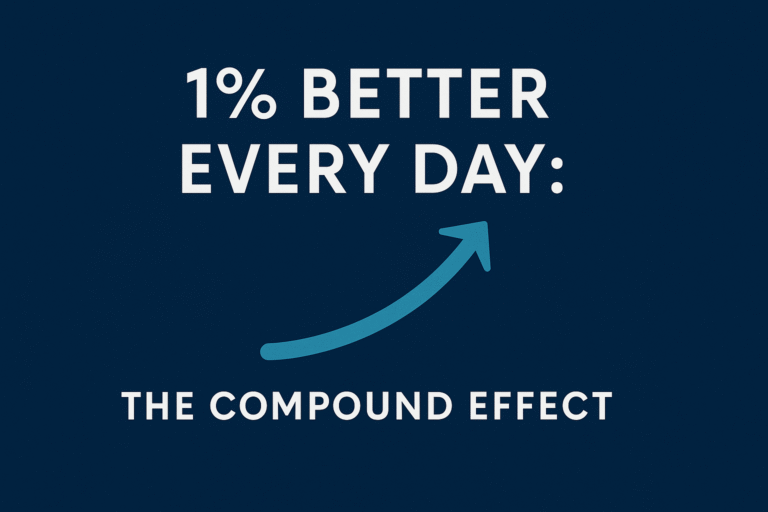Becoming a millionaire isn’t about luck—it’s about building the right habits and sticking to them consistently. The difference between those who accumulate wealth and those who don’t often comes down to daily decisions. If you want to secure financial freedom, you need to develop millionaire financial habits that will set you up for long-term success.
When I was in my early twenties, I thought making more money was the key to wealth. But as I started studying successful investors, entrepreneurs, and self-made millionaires, I realized that it wasn’t just about income—it was about how they managed and multiplied their money. Let’s break down the five most powerful habits that will help you build wealth and achieve financial independence.
Habit #1: Pay Yourself First
Why It Matters
Most people get their paycheck, cover their expenses, and save whatever is left—if anything at all. But wealthy individuals do the opposite. They pay themselves first, setting aside money for savings and investments before spending on anything else.
How to Implement It
- Automate your savings. Set up an automatic transfer to your savings and investment accounts right when you get paid.
- Start with a percentage. Aim for at least 20% of your income, but if that’s too much, begin with 10% and increase over time.
- Build an emergency fund. Save at least 3-6 months’ worth of living expenses so unexpected costs don’t derail your financial goals.
When I first started doing this, I was surprised at how quickly my savings grew. What seemed like a small amount at first turned into a solid safety net in just a few months.
If you are not paying yourself first and don’t have a budget, you can download our Ultimate Financial Budget Spreadsheet for free.
Habit #2: Invest Early and Consistently
Why It Matters
One of the biggest wealth-building secrets is compound interest—earning interest on both your initial investment and the interest it accumulates over time. The earlier you start investing, the more your money will grow.
How to Implement It
- Start investing now, even if it’s a small amount. Thanks to fractional shares, you don’t need thousands of dollars to begin.
- Focus on index funds and ETFs. These are great for beginners since they provide diversification with lower risk.
- Take advantage of tax-advantaged accounts. Contribute to Roth IRAs, 401(k)s, or HSAs to maximize tax-free or tax-deferred growth.
A mentor once told me, “It’s not about timing the market; it’s about time in the market.” Even small, regular investments will add up over time, making this one of the most essential millionaire financial habits to develop.
Habit #3: Live Below Your Means
Why It Matters
One of the biggest misconceptions is that millionaires live extravagant lifestyles. In reality, many wealthy people prioritize financial security over flashy spending. Warren Buffett still lives in the same house he bought in 1958!
How to Implement It
- Distinguish between wants and needs. Focus on spending money in ways that add long-term value to your life.
- Stick to a budget. Use the 50/30/20 rule (50% needs, 30% wants, 20% savings/investing) to manage your finances.
- Avoid lifestyle inflation. Just because you get a raise doesn’t mean you need to upgrade your car or move into a bigger apartment.
Early in my career, I made the mistake of increasing my expenses every time I made more money. Once I learned to live below my means, I was finally able to grow my savings and invest consistently. The biggest temptation is seeing savings grow and immediately wanting to spend it all.
Habit #4: Build Multiple Streams of Income
Why It Matters
Relying on one paycheck is risky. The wealthy understand that financial security comes from multiple income streams, reducing dependence on any single source.
How to Implement It
- Start a side hustle. Freelancing, tutoring, or selling digital products can bring in extra cash.
- Invest in cash-flowing assets. Real estate rentals, dividend stocks, or business investments can generate passive income.
- Monetize your skills. If you have expertise in an area, create a course, start a YouTube channel, or offer coaching services.
When I started investing in real estate, I realized how powerful passive income could be. That extra income gave me financial flexibility and allowed me to reinvest in other opportunities. Also, owning these increased my net worth drastically. The key to building wealth is owning assets, not stuff.
Habit #5: Keep Learning and Networking
Why It Matters
Successful people never stop learning. They know the best investment they can make is in themselves and their skills. They read, attend seminars, and surround themselves with people who challenge them to grow.
How to Implement It
- Read books and listen to podcasts on finance and investing. Some top recommendations include Rich Dad Poor Dad by Robert Kiyosaki and The Psychology of Money by Morgan Housel.
- Find mentors and join mastermind groups. Being around financially successful people will help you develop a wealth-building mindset.
- Stay adaptable. The financial world evolves, and staying educated ensures you make smart money decisions.
One of my biggest breakthroughs came when I joined a mastermind group of entrepreneurs. Seeing how they thought about money and investments completely changed my perspective and helped me implement better millionaire financial habits.
Final Thoughts: Start Building Your Millionaire Mindset Today
Becoming a millionaire isn’t about winning the lottery or making a lucky bet—it’s about building the right financial habits and sticking to them consistently.
Start today by:
- Paying yourself first. Automate your savings and investments. (If you don’t have a budget, start with that first!)
- Investing early and consistently. Let compound interest work in your favor.
- Living below your means. Avoid lifestyle inflation and prioritize wealth-building.
- Building multiple income streams. Diversify your sources of revenue.
- Continuing to learn and grow. Never stop improving your financial knowledge.
The earlier you start, the easier it will be to achieve financial freedom. Which of these habits will you implement first? Drop a comment and let’s talk about your journey to financial success!
References
- Robbins, Tony. Money: Master the Game—7 Simple Steps to Financial Freedom. Simon & Schuster, 2014.
- Kiyosaki, Robert T. Rich Dad Poor Dad: What the Rich Teach Their Kids About Money That the Poor and Middle Class Do Not!. Warner Books, 1997.
- Buffett, Warren. The Essays of Warren Buffett: Lessons for Corporate America. Lawrence A. Cunningham, 2001.
- Stanley, Thomas J., and William D. Danko. The Millionaire Next Door: The Surprising Secrets of America’s Wealthy. Taylor Trade Publishing, 1996.
- Dalio, Ray. Principles: Life and Work. Simon & Schuster, 2017.





